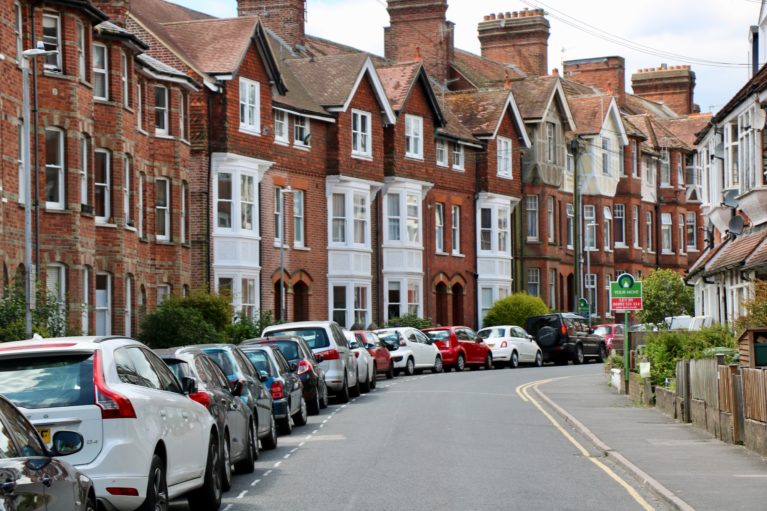Hostile environment
Liberty helps defeat government’s discriminatory Right to Rent scheme
The High Court has ruled that the Home Office’s Right to Rent scheme is discriminatory.
The fight to dismantle the government’s shameful hostile environment policy took another big step today, as the High Court ruled that the Home Office’s Right to Rent scheme is discriminatory.
In a case brought by the Joint Council for the Welfare of Immigrants (JCWI), with important interventions from Liberty, the Residential Landlords Association (RLA) and the Equality and Human Rights Commission (EHRC), it was revealed that the technically complex Right to Rent scheme – designed to ensure only people with a right to remain in the UK can access the private rental market, and heavily penalising any landlords who knowingly rent outside the rules – was having a negative effect on landlords’ behaviour so that they were more likely to indirectly discriminate against foreign renters in favour of those who had a UK passport.
This behaviour was found in a range of evidence, including the Home Office’s own research – which was only disclosed a week before the case began – showing that 25% of landlords would not be willing rent to anyone without a British passport. In light of this powerful evidence, the High Court held that the scheme had caused indirect racial discrimination in a way that deprived people of their right to have a family or private life.
Effectively, the chilling effect on landlords was such that they were fearful of renting to those without a British passport.
The Government must now either scrap or rebuild the scheme to ensure it is compatible with Articles 8 (family and private life) and 14 (prohibition of discrimination) of the European Convention on Human Rights.
Lara ten Caten, Liberty solicitor, said: “Today’s victory is another nail in the coffin for the government’s misguided, discriminatory and unworkable hostile environment policy.
“Rather than wasting tax payer’s money fighting a case which their own evidence showed they were very likely to lose, it’s time the Home Office recognised the fundamental rights of all people to find a home for their families, to be treated fairly and with dignity.
“While effective immigration control is a legitimate aim for any government, the Home Office must stop outsourcing its discriminatory policies to third parties who are ill-equipped to enforce them but may be slapped with heavy fines and even end up in prison if they don’t. Landlords are not border guards. The government must now scrap this shameful scheme and not waste any more tax payer money on an appeal.”
Background: what is the Right to Rent scheme?
The Right to Rent scheme was introduced in 2016 as part of the government’s broader hostile environment. It was designed to ensure that only those with a legal right to be in the country could access the private rental market. It prohibits the letting of accommodation to anyone who is not a British, Swiss or EEA citizen and to those who do not have a right to remain in the UK.
As with many other areas of the hostile environment regime, the scheme delegates immigration control duties onto third parties, in this case landlords, by placing the onus on them to request a passport, biometric residence permit or documents that show the prospective tenant is here legally. Any landlord who lets to someone who does not have the right to rent is liable to be fined and/or imprisoned unless they can show that they undertook the prescribed checks and informed the Home Office of any discrepancies.
This checking requirement has introduced significant delays to the rental process, the effect of which has been to encourage a low-risk letting approach by landlords who have been more likely to rent to ‘easier’ tenants who can readily demonstrate a right to rent.
Evidence gathered by the JCWI and the Home Office itself showed that the scheme unfairly prejudiced against those who did not have a UK passport.
The Government had evidence, released only a week before the case began, that a quarter of the number of landlords they had interviewed were avoiding those who did not have a British passport for pragmatic market reasons and for fear of falling foul of the new rules.
When 6,584 landlords were asked “which, if any, of the following types of tenants are you not willing to let to? (and select all that apply)”, 25% selected non-UK passport holders.
This echoed findings made by the JCWI in January 2017, which showed that both foreign nationals and people from black, Asian and mixed ethnic (BAME) communities were also being affected.
Liberty, represented by Martin Westgate QC, Daniel Clarke and James Kirk at Doughty Street Chambers (who all acted probono), intervened in the case to highlight to the High Court why the government must not be allowed to outsource immigration control to landlords and how Article 8 (right to family and private life) was negatively impacted by the Right to Rent scheme.
Liberty’s submissions therefore assisted the High Court to find it was the Right to Rent scheme introduced by the government (and not landlords’ racism) which led to the discrimination overwhelmingly proved by all the evidence. Had the Court not found the Right to Rent Scheme caused the discrimination, the government would have been allowed to continue to operate the scheme without any (or very little) changes.
I'm looking for advice on this
Did you know Liberty offers free human rights legal advice?
What are my rights on this?
Find out more about your rights and how the Human Rights Act protects them
Did you find this content useful?
Help us make our content even better by letting us know whether you found this page useful or not


